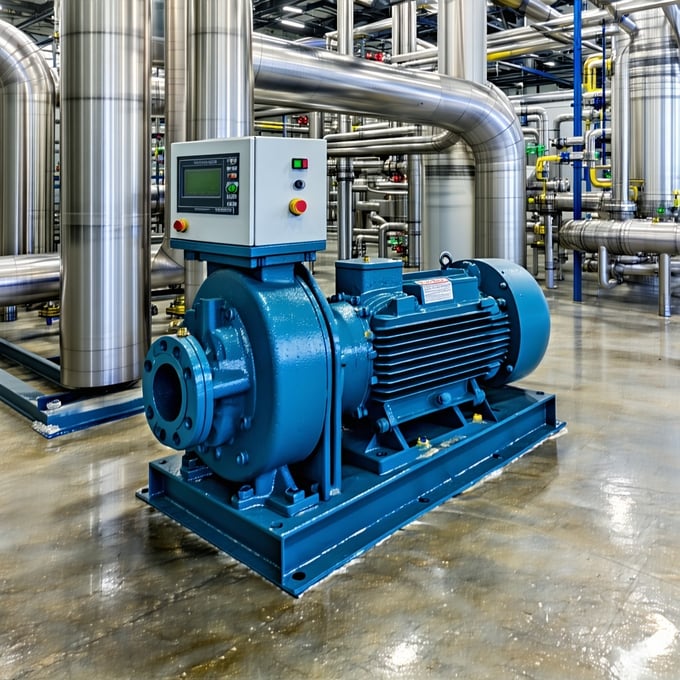
What Is a Booster Pump? A Comprehensive Guide to Water Pressure Solutions
If you've ever experienced weak water pressure in your home or facility, you understand how frustrating it can be when water barely trickles from faucets or industrial equipment doesn't receive adequate flow. A booster pump could be the solution you need. This comprehensive guide will explain everything you need to know about booster pumps, their applications, and how they can solve your water pressure challenges.
Understanding Booster Pumps: The Basics
A booster pump is a mechanical device designed to increase water pressure in plumbing systems where the existing pressure is insufficient. These pumps work by taking incoming water at low pressure and "boosting" it to a higher pressure level, ensuring consistent and reliable water flow throughout your system.
Think of a booster pump as a helper that gives water the extra push it needs to reach its destination with adequate force. Whether you're dealing with a multi-story building, agricultural irrigation, or industrial processes, booster pumps play a crucial role in maintaining optimal water pressure.
How Do Booster Pumps Work?
Booster pumps operate through a relatively straightforward mechanical process:
- Water Intake: The pump receives water from the main supply line or storage tank
- Impeller Action: An internal impeller spins rapidly, creating centrifugal force
- Pressure Generation: This force increases the water's velocity and pressure
- Distribution: The higher-pressure water is then distributed through the system
Key Components of a Booster Pump
| Component | Function |
|---|---|
| Motor | Provides power to drive the pump mechanism |
| Impeller | Creates centrifugal force to increase water pressure |
| Pressure Sensor | Monitors system pressure and controls pump operation |
| Control Panel | Manages pump functions and provides system feedback |
Common Applications for Booster Pumps
Municipal Water Systems
In municipal applications, booster pumps help maintain consistent water pressure across extensive distribution networks. They're particularly crucial in areas where:
- Geographic elevation changes affect water pressure
- Distance from the main water source impacts flow
- Population growth strains existing infrastructure
Industrial Applications
Manufacturing facilities and industrial processes often require precise water pressure control. Booster pumps are essential for:
- Process water systems
- Cooling systems
- Cleaning operations
- Manufacturing processes
Commercial Buildings
High-rise buildings and commercial complexes rely on booster pumps to ensure water reaches all floors with adequate pressure. These systems are critical for:
- Fire suppression systems
- Domestic water supply
- HVAC systems
- Irrigation systems
Selecting the Right Booster Pump
Choosing the appropriate booster pump requires careful consideration of several factors:
Flow Rate Requirements
Calculate the maximum flow rate needed for your application. This is typically measured in gallons per minute (GPM) or liters per minute (LPM). Consider peak usage times and future expansion needs when determining flow requirements.
Pressure Requirements
Determine both the incoming pressure and the desired output pressure. The difference between these values, plus any additional head pressure needed, will help determine the required pump capacity.
System Configuration
Consider factors such as:
- Pipe size and material
- Distance and elevation changes
- Number of outlets or usage points
- Operating environment
Monitoring and Control Solutions
Modern booster pump systems benefit greatly from advanced monitoring and control solutions. RACO Manufacturing & Engineering's Catalyst® and AlarmAgent® systems provide essential remote monitoring capabilities for booster pump installations, ensuring:
- Real-time pressure monitoring
- Immediate alarm notification for system issues
- Performance data logging and analysis
- Remote control capabilities
Maintenance and Troubleshooting
Regular maintenance is crucial for optimal booster pump performance. Key maintenance tasks include:
| Maintenance Task | Frequency |
|---|---|
| Check pressure readings | Daily |
| Inspect for leaks | Weekly |
| Clean filters | Monthly |
| Test control systems | Quarterly |
Conclusion
Booster pumps are essential components in many water distribution systems, providing the necessary pressure to ensure reliable water delivery. Whether you're managing a municipal water system, industrial facility, or commercial building, understanding booster pumps is crucial for maintaining efficient operations.
For optimal performance and reliability, consider implementing a robust monitoring system like RACO's Catalyst® or AlarmAgent®. These solutions provide the oversight and control needed to maintain system efficiency and prevent costly disruptions.
Recommended Internal Links:
- Water pressure monitoring systems
- Remote pump control solutions
- Industrial automation systems
- Municipal water management
- Alarm notification systems
